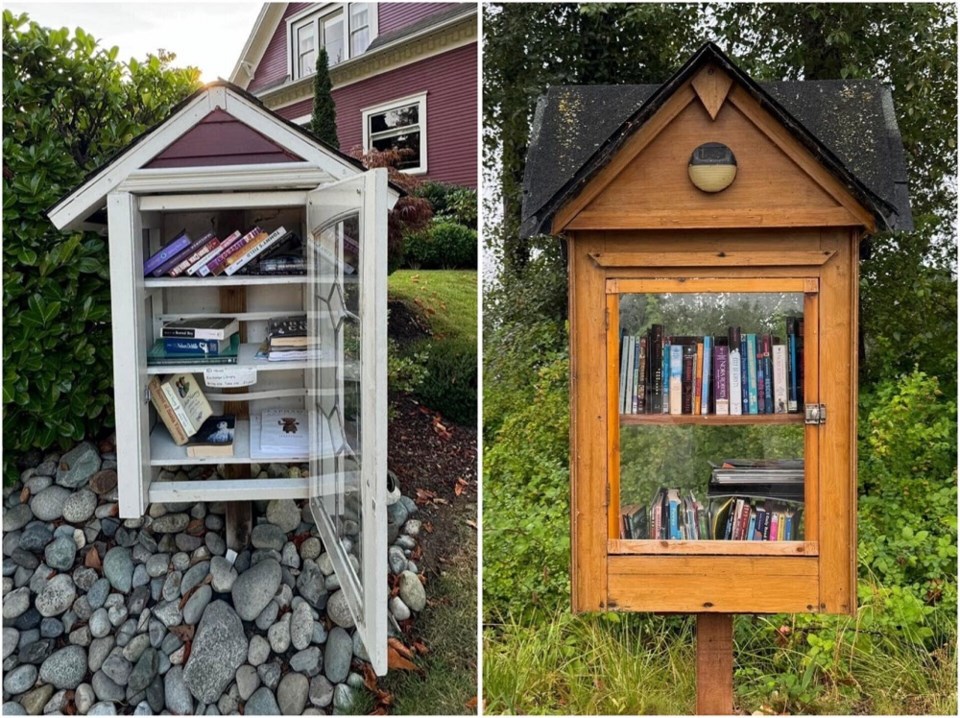On a chilly winter’s day in Regina, Sask., bundled up in four layers, I happened upon my very first Little Free Library.
It was shortly after moving to Canada, and while I had heard about these charming book exchanges, this was my first real encounter.
The library was a striking red wooden structure, beautifully crafted. I stood there for a moment, admiring it, and took a photo, though I didn’t take any books since I had none to leave behind. Despite the harsh weather making it difficult to carry a book, this encounter marked the beginning of my journey into the world of Little Free Libraries.
When I left Kabul, Afghanistan, I had to leave behind many of my books.
I asked my mother to try and save them, even though no one else in our family shared my interest in reading. My father, who had passed away, was the one who had nurtured my love for literature. He had preserved a large box of books through the harsh years of Kabul's civil war. When the conflict intensified, we moved from the city to the countryside. My father packed some of his books in a box along with other necessities, and they found a corner in our new refuge in Paghman, Kabul.
In those turbulent times, possessing books was a mark of bravery, as they were often destroyed by radical groups who viewed literacy as a threat.
My father's wooden and leather book box seemed like a treasure to me, and I was always looking for a chance to explore its contents. He appeared reluctant to let us approach the box, possibly because he thought I was too young for those books or because it might contain personal items.
Nonetheless, whenever I could, I would open the box and immerse myself in the Afghan and Iranian magazines from the royal era.
One book, in particular, fascinated me — it was filled with animal pictures and stories from my father's school days. That book was a stark contrast to our schoolbooks, which had been revised under the influence of Jihadi groups to reflect their ideological perspective.
My father’s book collection played a significant role in cultivating my love for reading and my interest in collecting books.
When I lived in Kabul, the only public library we had was small, with a collection of old books and an old-fashioned system, and the atmosphere was quite dull.
After moving to Canada, I explored many public libraries and joined several. I also became a huge fan of little free libraries, and now I always explore them whenever I spot one while driving around B.C.
Little Free Libraries are miniature, self-standing book exchanges designed to offer free books to the community. Typically placed in public areas, their purpose is to promote literacy, inspire a love for reading, and foster community connections through the exchange of books. Since they were first introduced in 2009, these libraries have grown into a worldwide movement, with more than 150,000 registered locations in more than 100 countries.
There are so many little libraries throughout B.C. that I can’t say exactly how many exist.
In New Westminster, where I reside, they are quite numerous. In the Sapperton neighbourhood, where I take my morning walks, I’ve counted five within a 2 km distance. I’ve noticed two on Richmond Street, one on East Columbia Street, one on Cumberland Street, and one more on Nootka Street. These are just the ones I’ve encountered during my daily walks.
Outside of Sapperton, I usually check out the Red House Library on Fourth Avenue; there’s another one further down the same street.
I regularly donate and take books from them. One of my go-to libraries is on Sixth Street. It’s always filled with fresh titles — fiction, nonfiction, memoirs, and more — every day.
I’m not sure how long it’s been there, but it’s the most vibrant Little Free Library I’ve seen. Being in a bustling spot, it gets a lot of visitors, especially those grabbing coffee from Starbucks or Tim Hortons nearby.
At Little Free Libraries, there’s often an opportunity to connect with others and start a conversation. On one occasion, while I was browsing the books, a woman asked me for a book recommendation. The only one I was familiar with was The Kite Runner, which was published after 9/11. I mentioned that it’s a story from my home country but wasn’t sure if it would be a good recommendation for her. She responded, “Oh, Afghanistan! I’ve read that.” That exchange led to a meaningful connection and a great friendship.
While taking another walk in Queensborough, I came across another beautiful Little Free Library. I found and took a book titled Daughter of Destiny, an autobiography by Benazir Bhutto, the first female Prime Minister in the Islamic world.
I posted about that library in a community group on Facebook, which led to a big discussion. Many people commented, some asking for the exact location so they could donate books. Federica Tiano said, "So adorable, this is one of the things I love about living in Canada. We don’t have anything like this in Italy." Tatiana Sharapova mentioned that her husband had built the library.
Little Free Libraries have played a significant role in helping me find my place in Canada.
From that first encounter in Regina to my daily walks in New Westminster, these libraries have been a constant source of comfort and connection.
They are not just places to exchange books; they are spaces where stories from different cultures converge, allowing us to share pieces of ourselves with others.
In these exchanges, I’ve found a community that values the same things I do — literacy, connection, and the simple joy of a good book.
- Fahim Rasa, New Westminster



